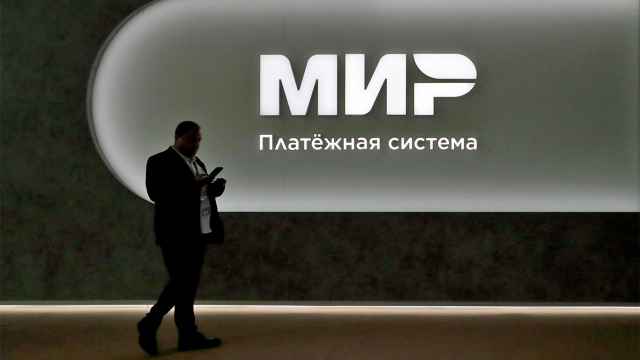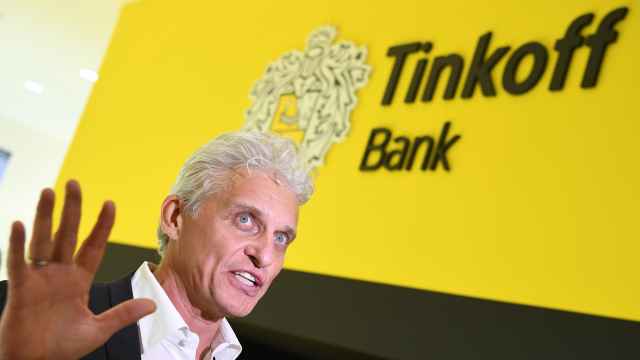Alexei Bolshakov, General Director at Citigroup Russia, Global Markets, has left the bank as Wall Street accelerates its retreat from Moscow.
Bolshakov, a stalwart at Citigroup in Moscow for almost nine years, joined in 2008 from Deutsche Bank but had previously worked for the U.S. lender as branch manager for Citibank’s retail operation from 2005 to 2007.
Bolshakov didn’t reply to emails seeking comment. A spokesperson declined to comment on his departure but referred to a prior statement by the bank following the effective closure of its research team in Moscow last month.
“In line with current market conditions, we made targeted headcount reductions in our front office,” the statement says. “We continue to grow and add talent strategically across the company and continue to make investments against our business priorities and to improve our infrastructure to best serve our clients.”
The statement was released after Bloomberg News reported that Ronald Smith and Barry Ehrlich, the last two equity analysts in Citigroup’s dwindling Moscow office, were axed.
“They are just making it bare bones now,” a former Citigroup banker in Moscow said. “Traders have left and bankers too but research and sales is basically cut.”
In January this year, Citigroup said it planned to further cut the number of its offices in the country, while somehow managing to boost business.
Michael Berner, board member and consumer business manager, said the bank would slash its number of branches to 15 from 22 to by the end of the year in a bid to move its customer base online.
The lender, which has been in the country since 1992, is Russia's 21st largest bank by assets. According to its website, Citigroup has more than 3,000 corporate clients, and serves about 500,000 retail customers across the country.
The scaling back of U.S. banking operations has been a trend since Western countries began imposing sanctions on Moscow over its annexation of Crimea from Ukraine in 2014.
In the first quarter this year, it was disclosed that Russian investment banking fees had slid to their lowest level in four years. Commissions during the first three months of the year amounted to $32.5 million compared to $61.7 million for the same period in 2018, according to analysis by data company Refinitiv.
In May, rival Morgan Stanley announced it had sent a formal notice to Russia’s central bank flagging its intention to shutter its Moscow banking operations in the first quarter of 2020.
The Wall Street bank’s Russian subsidiary said in the report that U.S. and EU sanctions imposed since 2014 had made it hard for Russian businesses to access international capital markets.
"The impact of changes in the economy on the future results of the bank’s business and its financial condition may turn out to be significant,” the report said.
Morgan Stanley will keep a consulting business in Russia, which would not require a license, according to the report. Other U.S. titans, such as J.P. Morgan, are also believed to be tightening belts and cutting their headcount.
The arrest of Michael Calvey, the American pioneer in Russia private equity, has also disquieted many of the bosses back on Wall Street. Calvey, who works closely with many of the investment banks to sell and list his portfolio companies, was detained in February this year on dubious charges of embezzlement.
A Moscow court last week ruled to extend Calvey’s house arrest until January, while his personal assets — such as cars, apartments and bank accounts — and those of his colleagues, have also been seized.
The case has sent shockwaves through the Russian investment community, with both Russians and non-Russians speaking out in Calvey’s defence. Several other executives and employees at Calvey's Baring Vostok private equity firm were also arrested and charged with financial fraud. They all deny any wrongdoing and say the case is being used against them in a corporate dispute with Kremlin-linked Artem Avetisyan over the control of Bank Vostochny.
A Message from The Moscow Times:
Dear readers,
We are facing unprecedented challenges. Russia's Prosecutor General's Office has designated The Moscow Times as an "undesirable" organization, criminalizing our work and putting our staff at risk of prosecution. This follows our earlier unjust labeling as a "foreign agent."
These actions are direct attempts to silence independent journalism in Russia. The authorities claim our work "discredits the decisions of the Russian leadership." We see things differently: we strive to provide accurate, unbiased reporting on Russia.
We, the journalists of The Moscow Times, refuse to be silenced. But to continue our work, we need your help.
Your support, no matter how small, makes a world of difference. If you can, please support us monthly starting from just $2. It's quick to set up, and every contribution makes a significant impact.
By supporting The Moscow Times, you're defending open, independent journalism in the face of repression. Thank you for standing with us.
Remind me later.






